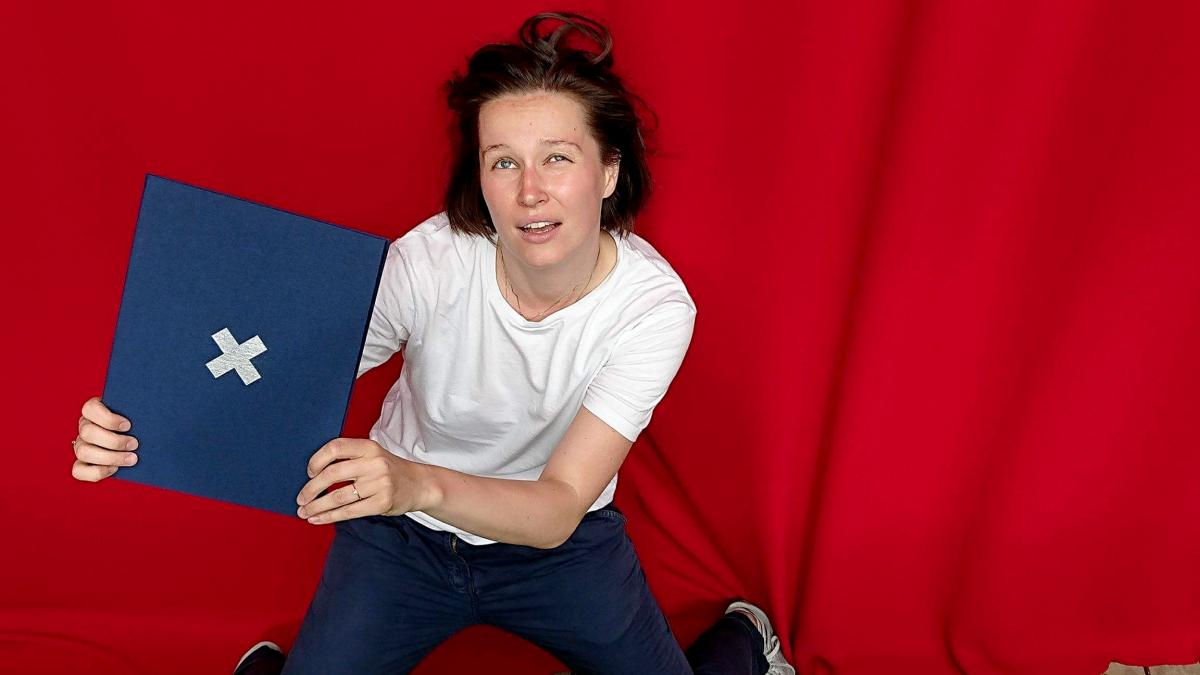Choreographer & alum Sara Gurevitsch: Stay inquisitive and willing to negotiate
Read an interview with Sara Gurevitsch.

1. Who are you and how did you end up studying at Uniarts Helsinki?
I began my MA studies in choreography in 2015. Before that, I had completed my BA degree in Copenhagen at the Danish National School of Performing Arts. I ended up studying choreography because I wanted to investigate and observe what I was doing as a dancer. I graduated in June 2018.
2. What was your entrance exam like?
As I recall, Eeva Muilu guided us through an hour of improvisation to start things off. We had also received some advance assignments that included the preparation of a solo piece. The entrance exams took several days. There were different assignments on different days; for instance, one of the days devoted to dance comprised a written part that became the source of all themes and thoughts we processed on that day. We completed group assignments together with other applicants, which gave us a taste of what was to come. The group work was all about learning from each other and exchanging thoughts. I was nervous a lot of the time, but the atmosphere was very open and generous.
3. How did you prepare for your entrance examination?
By working in my studio, continuing to practice my own areas of interest. By outlining a solo dance and fitting it into the time frame I had been given.
4. What did you think about the advance assignments?
We were to write two essays in which we analysed the work of two choreographers of our own choice. I really appreciated that, since I like analysing things. The essays gave me an opportunity to engage in critical and analytical thinking.
5. And your studies, what were they like?
The theory part of my studies raised my level of understanding as a maker. I received a large number of tools to help me grasp different frames of reference, and discourses to explore in my own role as an artist. From a broad perspective, I learned all the different ways in which a choreographer can work. From my own, narrow perspective, I began to fathom my own place in the world and how I can contribute by creating something that relates to society as a whole.
6. Can you mention some memorable courses or projects during your studies.
The TAKO project (taiteellinen kollaboraatio, artistic collaboration) was an experience that stands out vividly. Our group was fairly large, with members coming from different disciplines. We didn’t know each other beforehand and didn’t share the same knowledge base – the only thing we had in common was going to the same school. That was a challenging experience. The final output of the project was artistically very concise, I felt. Otherwise, too, different kinds of collaboration projects have left the biggest impact, and as I ponder them afterwards I feel they have provided the biggest impetus for self-reflection.
7. Can you describe a typical day for you as a student?
We would arrive at the university around 9-9:30 a.m. There would be theory and history classes until lunch, then usually some course or collaboration, for instance with the Academy of Fine Arts or a work group, until five o’clock. It was like this for the first year and a half. Towards the end of studies, the mornings were freed up and we received lots of guests who would tell us about their work in the field.
8. What was the best thing about your studies?
Discussions with professors and visiting artists. The Academy’s connections and networks gave us a lot. For instance, we visited Moscow and Frankfurt. The Academy supports students going out to see and experience things and create their own contacts with the outside world. I feel the Theatre Academy has given me a lot.
9. What was the most challenging aspect of your studies?
The tight schedule. There was not a lot of room or strength left to work on my own art.
10. What advice would you give future applicants?
Stay inquisitive and ready to negotiate. Trust the process. This programme opens the door to processes that go deep into your environment and yourself.